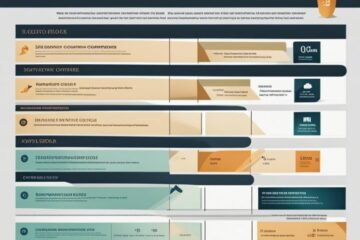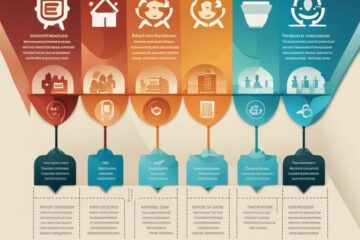Relationships are the cornerstone of any successful business, and when it comes to making those connections with customers, the impact can be truly transformative. In today’s increasingly competitive marketplace, businesses that prioritize building strong relationships with their customers are the ones that ultimately come out on top. From enhancing brand loyalty to driving sales and fostering customer advocacy, the benefits of cultivating these customer connections cannot be overstated.
One of the most critical aspects of building relationships with customers is the ability to truly understand their needs and preferences. By taking the time to listen to their feedback, communicate effectively, and personalize the customer experience, businesses can create a sense of trust and loyalty that is invaluable in today’s business landscape. This trust not only leads to repeat business and customer retention but also paves the way for organic growth through positive word-of-mouth referrals.
Furthermore, in an age where consumers have more choices than ever before, businesses that invest in customer relationships set themselves apart from the competition. By going the extra mile to show customers that they are valued and appreciated, businesses can create a strong emotional connection that goes beyond mere transactions. This emotional bond can turn customers into brand advocates, resulting in long-term success and sustainability for the business.
The Psychology Behind Customer Loyalty
Emotional Drivers of Customer Behavior
Drivers of customer behavior are deeply rooted in emotions. Customers do not just buy products or services; they invest in experiences and relationships. The emotional connection a customer feels towards a brand can drive their purchasing decisions. It could be a sense of belonging, nostalgia, or even trust that influences their behavior.
By understanding the emotional drivers that motivate customer behavior, businesses can tailor their marketing strategies to create stronger connections. A personalized approach that resonates with the customer’s emotions can lead to higher levels of engagement and loyalty. Brands that evoke positive emotions and make customers feel valued are more likely to cultivate a loyal customer base.
Building emotional connections with customers goes beyond transactions; it builds long-term relationships that can withstand challenges. When customers feel emotionally invested in a brand, they are more likely to forgive mistakes and remain loyal. Businesses that prioritize understanding and nurturing these emotional drivers can create a powerful foundation for customer loyalty.
The Trust Factor in Business Relationships
Behavior in customer relationships is heavily influenced by trust. Trust is the foundation of any successful business relationship. Customers are more likely to choose a brand they trust and feel confident in. Establishing trust involves transparency, consistency, and reliability in all interactions with customers.
Businesses that prioritize building trust with their customers are more likely to retain them in the long run. Trust fosters loyalty and encourages repeat business. Moreover, trust can also lead to positive word-of-mouth marketing, as satisfied customers are likely to recommend a brand they trust to others.
Understanding the trust factor in business relationships is crucial for sustainable success. Businesses must invest in building trust with their customers by delivering on promises, being open and honest in communication, and demonstrating reliability in all aspects of their operations.
Strategies for Building Strong Customer Relationships
Personalization – The Key to the Customer’s Heart
Heartfelt connections with customers are crucial in today’s competitive market. Personalization is the key to unlocking the customer’s heart and building a lasting relationship. By tailoring your products or services to meet their specific needs and preferences, you show customers that you understand and care about them as individuals.
Creating personalized experiences can include addressing customers by name, recommending products based on their purchase history, or sending personalized thank-you notes. These small gestures go a long way in creating a bond with your customers and fostering loyalty.
Customers are more likely to return to businesses that make them feel valued and understood. By investing in personalization strategies, you can enhance customer satisfaction and drive long-term success for your business.
Consistency in Customer Experience
To build strong relationships with customers, consistency is key. Every interaction a customer has with your business should reflect your brand’s values and deliver a consistent experience. Consistency helps build trust and reliability, making customers more likely to choose your business over competitors.
For instance, if a customer receives exceptional service in-store but has a disappointing online shopping experience, it can lead to confusion and dissatisfaction. Consistently delivering high-quality service across all touchpoints establishes your business as dependable and customer-focused.
Consistency builds credibility and reinforces your brand image in the minds of customers. By prioritizing consistency in customer experience, you can differentiate your business and leave a memorable impression on customers.
Effective Communication Channels
Customer feedback and communication are important for nurturing strong relationships. Utilizing effective communication channels such as email, social media, and live chat allows you to engage with customers in real-time and address their needs promptly.
By actively listening to customer feedback and responding in a timely manner, you demonstrate your commitment to their satisfaction. Effective communication channels enable you to gather valuable insights, resolve issues efficiently, and show customers that their opinions matter.
Personalizing communication based on customer preferences and past interactions can further strengthen relationships. By leveraging effective communication channels, you can foster open dialogue, build trust, and enhance customer loyalty.
Rewards and Recognition Programs
Strong rewards and recognition programs are powerful tools for building strong customer relationships. Offering incentives such as discounts, exclusive offers, or loyalty points encourages repeat business and creates a sense of value for customers.
Recognition programs that acknowledge and reward customer loyalty can help strengthen emotional ties with your brand. By showing appreciation for their continued support, you reinforce positive feelings and encourage long-term engagement.
Implementing well-designed rewards and recognition programs can set your business apart and create a loyal customer base. By prioritizing customer value through rewards and recognition programs, you can drive repeat purchases and advocacy for your brand.
Leveraging Technology to Enhance Customer Connections
Customer Relationship Management (CRM) Systems
Not only do CRM systems help businesses manage and analyze customer interactions and data throughout the customer lifecycle, but they also play a crucial role in enhancing customer connections. By providing a centralized platform to store customer information, track communication history, and segment customers based on preferences, businesses can tailor their interactions to meet individual needs and preferences. This level of personalization can lead to increased customer satisfaction and loyalty, ultimately boosting business success.
On top of that, CRM systems enable businesses to streamline their processes, automate tasks, and improve communication across different departments. This not only enhances internal efficiency but also ensures that customers receive a consistent experience across all touchpoints. By leveraging the power of CRM systems, businesses can strengthen their relationships with customers and stay ahead of the competition in today’s fast-paced market.
Furthermore, CRM systems provide valuable insights into customer behavior and preferences, allowing businesses to anticipate needs, identify trends, and personalize their marketing strategies. By leveraging data-driven decision-making, businesses can create targeted campaigns, offer relevant products or services, and ultimately increase customer engagement and conversion rates.
Social Media as a Relationship-building Tool
Connections through social media play a significant role in building and nurturing customer relationships in today’s digital age. Platforms like Facebook, Twitter, Instagram, and LinkedIn provide businesses with unique opportunities to engage with customers in real-time, respond to inquiries, and showcase their brand personality. By actively participating in conversations, sharing valuable content, and addressing customer feedback, businesses can humanize their brand and establish authentic connections with their audience.
With the widespread reach of social media, businesses can leverage these platforms to increase brand visibility, reach new audiences, and drive traffic to their websites. By creating compelling content, running targeted ads, and collaborating with influencers, businesses can create a strong online presence that resonates with their target audience. This not only helps in building brand loyalty but also fosters a community of loyal customers who advocate for the brand.
Social media also offers valuable data and analytics tools that help businesses understand customer behavior, preferences, and sentiment. By monitoring engagements, tracking metrics, and analyzing trends, businesses can fine-tune their social media strategy, tailor content to meet customer needs, and enhance customer engagement. Leveraging social media as a relationship-building tool is imperative for businesses looking to establish meaningful connections with customers and drive long-term success.
Using Data Analytics for Personalized Experiences
Relationships with customers can be significantly enhanced through the use of data analytics to deliver personalized experiences. By collecting and analyzing customer data, businesses can gain valuable insights into individual preferences, behaviors, and purchasing patterns. This allows businesses to create tailored recommendations, personalized offers, and customized experiences that resonate with each customer on a personal level.
Using advanced data analytics tools, businesses can segment their customer base, identify high-value customers, and predict future behavior. By leveraging predictive analytics, businesses can anticipate customer needs, prevent churn, and proactively address issues before they arise. This level of personalized service not only fosters customer loyalty but also drives revenue growth and business success.
Furthermore, data analytics enables businesses to measure the effectiveness of their marketing campaigns, track customer satisfaction levels, and optimize their overall customer experience. By utilizing data to make informed decisions, businesses can create relevant content, improve targeting strategies, and deliver personalized interactions that build lasting relationships with customers. The power of data analytics in enhancing customer connections cannot be underestimated in today’s competitive business landscape.
The Role of Mobile Platforms
Media usage on mobile platforms has become increasingly prevalent in recent years, making it imperative for businesses to optimize their digital presence for mobile devices. With a growing number of consumers using smartphones and tablets to access information, make purchases, and interact with brands, businesses must ensure their websites, apps, and content are mobile-friendly to provide a seamless user experience.
The Economics of Customer Retention
Cost-Benefit Analysis of Retention vs. Acquisition
After acquiring a new customer, it’s crucial to consider the costs associated with retaining them versus acquiring a new one. Any business can attest that it generally costs more to attract new customers than to retain existing ones. Marketing efforts, sales expenses, and promotional activities all contribute to the hefty price tag of customer acquisition. Conversely, maintaining a loyal customer base through excellent service, personalized interactions, and consistent quality can result in significant cost savings in the long run.
Lifetime Value of a Customer
One of the key metrics in evaluating customer retention is the Lifetime Value (LTV) of a customer. This metric represents the total revenue a customer is expected to generate throughout their entire relationship with a business. One customer who stays loyal over the years can contribute far more to the bottom line than multiple one-time purchasers. By understanding and maximizing the LTV of each customer, businesses can make informed decisions about where to focus their resources and how to cultivate long-lasting relationships.
Customer retention goes hand in hand with maximizing the Lifetime Value of each customer. By prioritizing customer satisfaction, personalized experiences, and ongoing communication, businesses can increase the likelihood of customers staying loyal for the long term. Strong relationships built on trust and reliability lead to repeat business, positive word-of-mouth referrals, and ultimately, higher profitability.
Reducing Churn Through Engagement
Lifetime customer value is directly impacted by the churn rate, which is the percentage of customers who stop doing business with a company over a certain period. Reducing churn through strategic engagement initiatives is crucial for long-term success. Engaging customers through personalized interactions, targeted promotions, and proactive customer service can significantly decrease the likelihood of them switching to a competitor.
By focusing on building strong connections and addressing customer needs promptly, businesses can reduce churn and increase customer loyalty. Investing in tools for data analysis, customer feedback, and relationship management can help identify potential churn risks early on and implement proactive strategies to retain valuable customers.
Upselling and Cross-selling Strategies
Engagement plays a crucial role in successful upselling and cross-selling strategies. By understanding customer preferences, past purchases, and behavior patterns, businesses can offer relevant and personalized recommendations to increase sales and customer satisfaction. Proactively suggesting complementary products or upgrades not only boosts revenue but also strengthens the customer’s perception of the brand.
With the right approach, upselling and cross-selling can deepen customer relationships, enhance the overall customer experience, and drive ongoing loyalty. By leveraging data analytics, customer insights, and targeted marketing campaigns, businesses can create opportunities for additional sales while providing value to their customers.
Customer Service Excellence
Training Staff for Empathy and Responsiveness
Keep in mind that customer service excellence begins with empathy and responsiveness. Empathy is the ability to understand and share the feelings of another, which is crucial when dealing with customers who may be frustrated or upset. Responsiveness involves promptly addressing customer inquiries, concerns, and feedback. Training your staff to embody these qualities can significantly improve the overall customer experience.
One way to train your staff for empathy and responsiveness is through interactive workshops and role-playing scenarios. These exercises can help employees practice active listening, problem-solving, and emotional intelligence. Encouraging a customer-focused mindset in your team will empower them to handle various customer interactions effectively.
By providing ongoing training and support, you can ensure that your staff consistently delivers exceptional customer service. Investing in your employees’ skills and mindset will not only benefit your customers but also contribute to a positive work culture within your organization.
Creating a Customer-centric Culture
Customer-centricity is about putting your customers at the heart of your business operations. Understanding your customers’ needs, preferences, and pain points is imperative for creating a customer-centric culture. This approach involves aligning your products, services, and processes to cater to customer expectations.
Empowering employees at all levels to prioritize customer satisfaction can cultivate a customer-centric culture within your organization. By fostering a customer-centric mindset, you can build long-lasting relationships with your customers and differentiate your business from the competition.
Customercentric businesses are more likely to retain loyal customers, attract new ones through positive word-of-mouth, and adapt to changing market demands effectively. Emphasizing customer-centricity as a core value can drive sustainable growth and profitability for your business.
Handling Complaints and Negative Feedback
Handling complaints and negative feedback is an inevitable part of running a business, but it also presents an opportunity to demonstrate your commitment to customer satisfaction. Handling these situations effectively requires patience, active listening, and a proactive approach to resolving issues.
Responding promptly to complaints, acknowledging mistakes, and offering solutions can turn a negative experience into a positive one for the customer. By addressing feedback constructively, you can not only retain the customer but also potentially convert them into a loyal advocate for your brand.
Training your staff to handle complaints with empathy and professionalism is key to maintaining a positive reputation and building trust with your customer base. By embracing feedback as a learning opportunity, you can continually improve your products and services to meet customer expectations.
The Importance of After-sales Support
Training your employees to provide excellent after-sales support is crucial for enhancing customer loyalty and satisfaction. Empathy plays a significant role in after-sales interactions, as customers may reach out with concerns or issues after making a purchase. Empathetic support can reassure customers that their needs are valued and drive repeat business.
By offering timely assistance, personalized solutions, and proactive follow-up, you can exceed customer expectations and foster long-term relationships. Recognizing the importance of after-sales support can differentiate your business from competitors and position you as a trusted partner in your customers’ journey.
Investing in after-sales training and resources demonstrates a commitment to customer care and sets a foundation for future interactions. By prioritizing the post-purchase experience, you can create a loyal customer base that advocates for your brand and contributes to sustainable business growth.
Networking and Partnership Building
Once again, in business success, networking and partnership building play a crucial role. By connecting with other businesses and individuals, companies can unlock a wealth of opportunities for growth and development. Building strong relationships through networking can lead to collaborations that benefit all parties involved and ultimately enhance the value provided to customers.
Collaborations that Enhance Customer Value
That said, collaborations are key when it comes to enhancing customer value. By teaming up with other businesses or individuals that complement your own offerings, you can create unique products or services that cater to a wider audience. These collaborations not only expand your reach but also add value to your customers by providing them with innovative solutions that meet their specific needs.
Moreover, partnering with like-minded businesses can help you tap into new markets and segments that you may not have access to otherwise. By combining resources, expertise, and networks, companies can create synergies that drive mutual success and foster long-term relationships with customers.
Aligning with Brands That Share Customer Bases
Customer alignment is crucial when partnering with other brands. Businesses that share similar customer bases can leverage each other’s strengths to create more impactful marketing campaigns, promotions, and offerings. By aligning with brands that appeal to the same target audience, companies can amplify their message and enhance their value proposition.
To achieve successful partnerships based on customer alignment, it is crucial to conduct thorough research and analysis to ensure compatibility and relevance. By understanding the needs and preferences of shared customers, businesses can tailor their collaborations to deliver maximum impact and value.
Community Involvement and Corporate Social Responsibility
One of the most powerful ways to connect with customers and build relationships is through community involvement and corporate social responsibility initiatives. By giving back to the community and supporting causes that matter to your customers, businesses can demonstrate their commitment to making a positive impact beyond profit.
Moreover, engaging in CSR activities can help companies enhance their reputation, build trust with customers, and differentiate themselves in a competitive market. By aligning their values with those of their customers, businesses can create a strong emotional connection that goes beyond transactions and fosters loyalty.
Leveraging Testimonials and Referrals
Sharing testimonials and referrals from satisfied customers is a powerful way to build trust and credibility with potential clients. Customer testimonials provide social proof of your product or service’s quality and effectiveness, which can help alleviate doubts and encourage new customers to make a purchase.
Moreover, referrals from existing customers are an excellent way to acquire new business through word-of-mouth marketing. By incentivizing referrals and showcasing positive experiences, companies can leverage the goodwill of their satisfied customers to attract new ones and grow their customer base.
Measuring the Impact of Customer Connections
Key Performance Indicators (KPIs) for Relationship Building
Unlike traditional business metrics that focus on revenue and profitability, measuring the impact of customer connections requires a different set of Key Performance Indicators (KPIs). Any company aiming to build strong relationships with customers should consider metrics like customer engagement levels, customer lifetime value, repeat purchase rate, and customer retention rate. These KPIs provide valuable insights into the effectiveness of relationship-building efforts and help businesses understand the long-term value of investing in customer connections.
Customer Satisfaction Surveys
Surveys are important tools for gathering feedback directly from customers about their experiences with a business. Any company serious about measuring the impact of customer connections should regularly conduct customer satisfaction surveys. These surveys can provide valuable insights into customer preferences, pain points, and overall satisfaction levels. By analyzing survey results, businesses can identify areas for improvement and tailor their offerings to better meet customer needs.
To measure the impact of customer connections effectively, companies must pay attention to both quantitative and qualitative feedback gathered through customer satisfaction surveys. While quantitative data provides numerical insights into overall satisfaction levels and specific aspects of the customer experience, qualitative feedback offers deeper insights into the reasons behind customer sentiments and preferences.
Net Promoter Score (NPS) and What It Tells You
Scored on a scale of 0 to 10, the Net Promoter Score (NPS) is a widely used metric for measuring customer loyalty and satisfaction. For instance, customers who score 9 or 10 are considered promoters, while those scoring 6 or below are detractors. By calculating the percentage of promoters minus detractors, businesses can gauge overall customer loyalty and predict future growth. A high NPS indicates strong customer advocacy and a positive impact on business success.
Measuring NPS regularly can help businesses track changes in customer sentiment over time and identify trends that may impact customer relationships. By analyzing NPS scores alongside other KPIs, companies can gain a comprehensive understanding of the impact of customer connections on business performance and make informed decisions to enhance customer loyalty.
Analyzing Customer Feedback for Continuous Improvement
Feedback from customers is a valuable source of insights that can drive continuous improvement and innovation within a business. Feedback collected from various channels, including surveys, social media, and customer reviews, can help businesses identify areas for enhancement, address customer concerns, and develop strategies to strengthen customer relationships. By analyzing customer feedback consistently, businesses can adapt to changing customer needs and preferences, ensuring long-term success.
To maximize the impact of customer feedback analysis, companies should establish clear processes for collecting, organizing, and acting upon customer insights. By leveraging feedback to drive improvements in products, services, and overall customer experience, businesses can foster stronger connections with customers, leading to increased loyalty and sustainable growth.
Addressing Challenges in Maintaining Customer Connections
Dealing with Market Competition
Challenges in maintaining customer connections arise when faced with market competition. In today’s crowded marketplace, businesses are constantly vying for the attention of consumers. This fierce competition can make it challenging to stand out and build lasting relationships with customers. Companies must find innovative ways to differentiate themselves and offer unique value propositions to attract and retain customers amidst intense competition.
One strategy to deal with market competition is to focus on building a strong brand identity that resonates with customers. By clearly defining what sets your brand apart and consistently communicating this message across all touchpoints, you can create a loyal customer base that chooses your brand over competitors. Additionally, providing exceptional customer service and personalized experiences can help cultivate deeper connections with customers, making them more likely to remain loyal even in the face of competition.
Another challenge is keeping up with changing market trends and consumer preferences. Businesses must stay agile and adaptable to meet evolving customer needs and expectations. By leveraging data analytics and market research, companies can gain valuable insights into consumer behavior and tailor their strategies to stay ahead of the competition.
Overcoming Technological Barriers
With the rapid advancement of technology, businesses face challenges in maintaining customer connections due to technological barriers. In today’s digital age, customers expect seamless and personalized interactions across various channels. However, outdated systems and siloed data can hinder efforts to provide a cohesive and integrated customer experience.
One way to overcome technological barriers is to invest in modern CRM systems and marketing automation tools. These technologies can help businesses streamline processes, centralize customer data, and enable more personalized communication with customers. By leveraging data-driven insights, companies can deliver targeted marketing campaigns and customized offerings that resonate with individual preferences and behaviors.
Additionally, businesses must prioritize cybersecurity and data privacy to build trust with customers. Ensuring that customer data is securely stored and protected from breaches is imperative in maintaining strong customer relationships. By implementing robust security measures and complying with regulations such as GDPR, businesses can demonstrate their commitment to safeguarding customer information.
Scaling Personalization
Competition in the digital landscape has made personalization a key differentiator for businesses looking to maintain customer connections. For companies, scaling personalized experiences can be a significant challenge due to the complexity of managing individualized interactions at scale. Personalization requires a deep understanding of customer preferences and behaviors to deliver tailored content and offerings that resonate with each individual.
One approach to scaling personalization is to leverage artificial intelligence and machine learning algorithms. These technologies can analyze vast amounts of data to predict customer preferences and automate personalized recommendations. By implementing AI-powered personalization strategies, businesses can deliver relevant content and products to customers in real-time, enhancing the overall customer experience and driving engagement.
Furthermore, creating dynamic content that adapts to each customer’s unique journey can help businesses stand out in a crowded marketplace. By crafting personalized messages and offers based on customer behavior and interactions, companies can create more meaningful connections with customers and increase loyalty and retention.
Legal and Ethical Considerations in Customer Data
Understanding the legal and ethical considerations in managing customer data is crucial for businesses looking to maintain customer connections. As companies collect and utilize vast amounts of customer information, they must prioritize data protection and privacy to comply with regulations and build trust with customers.
Connections must be established with customers transparently, outlining how their data will be used and ensuring their consent is obtained for any marketing or analytics purposes. Businesses should also regularly review and update their privacy policies to reflect any changes in data practices and communicate these updates clearly to customers.
Overcoming legal and ethical challenges requires a proactive approach to data governance and compliance. By appointing a dedicated data protection officer and implementing robust data security measures, businesses can mitigate risks and demonstrate their commitment to protecting customer data. Additionally, conducting regular audits and assessments of data handling practices can help identify and address any vulnerabilities or non-compliance issues proactively.
Case Examples of Successful Customer Connection Initiatives
Small Business Success Stories
Your small business can also thrive through building strong customer connections. Take for example a local bakery that sends personalized birthday cards to their loyal customers with a special discount included. This simple gesture not only makes the customers feel valued but also encourages return visits and word-of-mouth referrals. By fostering these personal relationships, the bakery creates a loyal customer base that contributes significantly to their success.
Business consulting firms are another great example of leveraging customer connections. These firms often host exclusive seminars and networking events for their clients, providing valuable insights and building trust along the way. By offering personalized attention and tailored solutions, these firms strengthen their relationships and ultimately, secure long-term partnerships.
Small businesses that prioritize customer connections find that their retention rates increase, leading to sustainable growth and profitability. By going the extra mile to connect with customers on a personal level, these businesses stand out in a competitive market and establish a strong reputation that speaks for itself.
Large Corporations’ Relationship Marketing Campaigns
Marketing giants like Coca-Cola and Starbucks have mastered the art of relationship marketing with their innovative campaigns. By engaging customers through loyalty programs, social media interactions, and experiential marketing, these corporations create lasting connections that go beyond transactions. The emotional bond that customers develop with these brands leads to repeat business and brand advocacy, driving overall growth and success.
Another key strategy employed by large corporations is the use of data analytics to personalize customer experiences. By tracking customer preferences and behaviors, companies can tailor their marketing efforts to individual needs, strengthening the connection and driving customer loyalty. This data-driven approach has proven to be highly effective in increasing customer lifetime value and overall profitability.
Large corporations that invest in relationship marketing initiatives understand the value of long-term customer relationships. By prioritizing customer satisfaction and retention, these companies create a competitive advantage that fuels their continued success in the market.
Service Industry Highlights
Initiatives in the service industry showcase the power of customer connections in driving business growth. Hotels that offer personalized welcome amenities and concierge services create memorable experiences that keep guests coming back. By anticipating and fulfilling customer needs, these establishments build loyal followings and benefit from positive word-of-mouth marketing.
This personalized approach is also evident in the insurance sector, where companies provide dedicated account managers and tailored insurance plans for each client. By fostering trust and communication, these companies establish long-term partnerships that result in customer satisfaction and retention. The investment in building these relationships ultimately pays off in customer loyalty and business success.
Service industry businesses that prioritize customer connections not only differentiate themselves from competitors but also create sustainable growth opportunities. By understanding and meeting the unique needs of their customers, these businesses build a reputation of reliability and quality service that leads to long-term success.
B2B Relationship Marketing Insights
Business to business (B2B) companies can also benefit from relationship marketing strategies to strengthen partnerships and drive growth. By providing personalized account management, tailored solutions, and proactive communication, B2B companies enhance customer loyalty and retention. These initiatives lead to long-term contracts and mutually beneficial relationships that support sustained business success.
Marketing efforts in the B2B sector often focus on thought leadership and industry-specific insights to engage customers on a deeper level. By positioning themselves as trusted advisors and partners, B2B companies can build credibility and loyalty among their client base. This approach not only fosters stronger connections but also opens doors to new business opportunities and referrals.
This customer-centric approach in B2B marketing emphasizes the importance of building authentic relationships based on trust and value. By aligning with the goals and priorities of their clients, B2B companies can drive mutual growth and success in a competitive marketplace.
Integrating Customer Connections into Overall Business Strategy
Now is the time for businesses to recognize the power of integrating customer connections into their overall strategic approach. Aligning business goals with relationship objectives is vital for long-term success. By incorporating a customer-centric focus into the core of the business strategy, companies can enhance their brand reputation, improve customer loyalty, and drive sustainable growth.
Aligning Business Goals with Relationship Objectives
Into the heart of every business plan should be the alignment of business goals with relationship objectives. This involves understanding that nurturing customer connections is not just a temporary tactic, but a fundamental strategy for sustainable success. By setting goals that prioritize building long-term relationships with customers, businesses can create a foundation for continued growth and profitability.
Incorporating Customer Feedback in Product Development
Businesses that involve their customers in the product development process gain a competitive edge. A customer-centric approach ensures that products and services meet the needs and preferences of the target audience, leading to higher satisfaction levels and increased loyalty. By actively seeking and implementing customer feedback, companies can stay ahead of the competition and drive innovation.
A comprehensive feedback system that allows customers to provide input at various stages of product development is imperative. By gathering insights on what customers truly value and incorporating their suggestions into the design and enhancement of products, businesses can create offerings that resonate deeply with their target market. This not only improves customer satisfaction but also fosters a sense of customer ownership and loyalty towards the brand.
Training and Incentives for Sales and Service Teams
Product and service teams play a crucial role in building and maintaining strong customer connections. Providing comprehensive training on effective communication, empathy, and problem-solving skills is imperative for ensuring positive interactions with customers. In addition, offering incentives tied to customer satisfaction can motivate teams to prioritize customer relationships and go above and beyond to meet their needs.
Understanding the importance of ongoing training and incentives for sales and service teams is key to fostering a customer-focused culture within the organization. By investing in the development of employees and recognizing their efforts in building customer connections, businesses can create a team that is dedicated to delivering exceptional customer experiences and driving long-term loyalty.
Long-term Planning for Customer Loyalty
Customer loyalty is the cornerstone of a successful business. Incorporating strategies for long-term customer relationship building into the overall business plan is imperative for sustained growth and profitability. By implementing initiatives such as loyalty programs, personalized promotions, and exclusive offers, businesses can cultivate a loyal customer base that actively promotes the brand and contributes to organic growth.
Incorporating customer feedback into long-term planning is crucial for maintaining relevance and meeting evolving customer needs. By staying attuned to customer preferences and continuously adapting products, services, and marketing strategies, businesses can strengthen their position in the market and ensure long-term success. Building a customer-centric approach into every aspect of the business strategy is key to building lasting relationships and driving business success.
Final Words
As a reminder, the power of customer connections cannot be underestimated in driving business success. By focusing on building strong relationships with your customers, you are not only creating loyalty but also increasing trust and credibility. These connections allow for deeper understanding of your customers’ needs and behaviors, leading to more personalized experiences and increased customer satisfaction. Ultimately, investing in these relationships can result in long-term success and growth for your business.
Furthermore, customer connections have the potential to generate valuable word-of-mouth marketing and referrals, which are powerful tools for attracting new customers. Satisfied customers are more likely to share their positive experiences with others, leading to a ripple effect of new business opportunities. By prioritizing customer relationships and delivering exceptional customer experiences, you are positioning your business for sustainable growth and a competitive edge in today’s market.
To sum up, the power of customer connections lies in the ability to create meaningful and long-lasting relationships that go beyond simple transactions. By focusing on building trust, providing personalized experiences, and fostering loyalty, businesses can unlock the full potential of their customer base and drive sustainable success. Embrace the opportunity to connect with your customers on a deeper level, and watch as your business thrives through strong relationships and customer advocacy.
FAQ
Q: Why are customer connections important for business success?
A: Customer connections are necessary for business success because they help build loyalty, trust, and repeat business. By establishing strong relationships with customers, businesses can also receive valuable feedback and insights to improve their products or services.
Q: How can businesses build strong customer connections?
A: Businesses can build strong customer connections by providing excellent customer service, personalized interactions, active listening, and consistent communication. It is also important to show genuine care and interest in customers’ needs and preferences.
Q: What are the benefits of cultivating customer relationships?
A: Cultivating customer relationships can lead to increased customer retention, higher customer lifetime value, positive word-of-mouth referrals, and a competitive edge in the market. Additionally, loyal customers are more likely to forgive occasional mistakes or issues.
Q: How can businesses leverage customer connections to boost sales?
A: Businesses can leverage customer connections to boost sales by offering personalized recommendations based on customer preferences, implementing targeted marketing campaigns, creating loyalty programs, and providing exceptional customer experiences that lead to repeat purchases.
Q: What role does communication play in strengthening customer connections?
A: Communication plays a crucial role in strengthening customer connections as it fosters transparency, trust, and understanding. By maintaining open lines of communication through various channels and responding promptly to customer inquiries or feedback, businesses can build lasting relationships with their customers.
Q: How can businesses maintain long-term customer connections?
A: Businesses can maintain long-term customer connections by consistently delivering value, staying engaged with customers through personalized interactions, seeking feedback to address any issues or concerns promptly, and adapting to changing customer needs and preferences over time.
Q: What are some best practices for building and nurturing customer relationships?
A: Some best practices for building and nurturing customer relationships include treating customers with respect and empathy, going above and beyond to exceed their expectations, rewarding loyalty, personalizing interactions, and constantly seeking ways to improve the overall customer experience.









